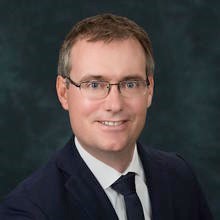首页﹀
The Impact of Return Migration on Employment and Wages in Mexican Cities
2022-05-13
Time: 15:00-16:30, May. 13th, 2022
Platform: Zoom
Speaker: Frank Neffke
(Harvard University)
Link: https://us06web.zoom.us/j/81626164288?pwd=Zmp1VG41dXF0by9UZTBRVkxSbjJWZz09
Meeting ID: 816 2616 4288
Passcode: inse
Abstract:
How do return migrants from the US to Mexico affect local workers? Return migrants increase the local labor supply, potentially hurting local workers. However, having been exposed to the technologically advanced US economy may also lead to knowledge transfers that benefit non-migrants. Using an instrument based on involuntary return migration, we find that, whereas workers who share returnees' occupations experience a fall in wages, workers in other occupations see their wages rise. These effects are, however, transitory and restricted to the city-industry receiving the returnees. In contrast, returnees permanently alter a city’s long-run industrial composition, by raising employment levels in the local industries that hire them.
Speaker:

Professor Frank Neffke has been a team leader at the Complexity Science Hub Vienna since July 2021. Before joining the Hub, Frank was the Growth Lab's Research Director at the Harvard Kennedy School. He joined the Growth Lab at Harvard's Center for International Development as a Research Fellow in 2012. His research focuses on economic transformation and growth, from the macro-level of structural change in regional and national economies to the micro-level of firm diversification and the career paths of individuals. This research has shed light on topics ranging from structural transformation and new growth paths in regional economies, economic complexity and the role of cities, local labor markets, the importance of division of labor, human capital and teams in modern economies, the consequences of job displacement and the future of work. Before joining CID, Frank worked as an assistant professor at the Erasmus School of Economics in Rotterdam, The Netherlands. He holds a Ph. D. in Economic Geography from Utrecht University in 2009.

